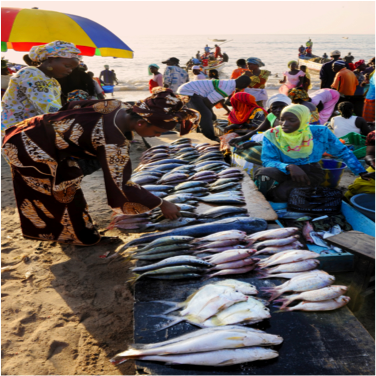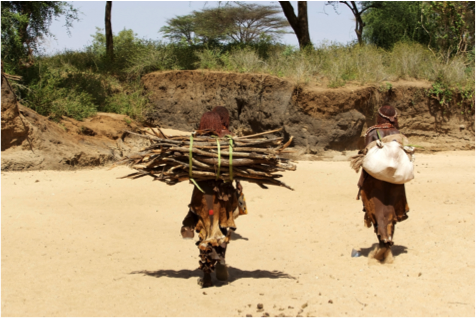Hello! My name is Anna Williams. I have worked on issues related to sustainable development as an evaluator, facilitator, and agent of change for 20+ years.
The concept of sustainable development took hold 25 years ago, but several challenges have hampered interpretation and analysis of progress, starting with these:

1. The oft-cited 1987 Brundtland Commission definition of sustainable development is “development that meets the needs of the present without compromising the ability of future generations to meet their own needs.” This definition does not translate well into practical application, and it causes confusion.
2. Sustainability and social equity are often viewed as inherently at odds, even when they are inextricably tied and win-win solutions are available in several areas, such as maternal health, energy efficiency, and subsistence fisheries. (This is not to discount the reality that some real tensions and tradeoffs do still need to be addressed.)
3. Efforts to identify sustainable development goals and indicators, and to measure and evaluate progress toward sustainable development, have struggled, and many faded into the background around ten years ago.
The good news: This past paradigm has faded, and in its place is the next era of sustainable development.

There is now consensus that human equity and well being are at the heart of sustainable development; that realizing environmental sustainability requires addressing extreme poverty, energy access, and maternal and reproductive health, among other fundamentals. In The Future We Want, the Rio +20 Resolution adopted in July 2012, the UN General Assembly stated, “Eradicating poverty is the greatest global challenge facing the world today and an indispensable requirement for sustainable development. In this regard we are committed to freeing humanity from poverty and hunger as a matter of urgency.”
To prepare for a 2015 post Millennium Development Goals agenda, efforts are underway to redefine sustainable development and create ways to understand progress toward it. One promising example of improved goals, targets, and indicators is the UN-commissioned Sustainable Development Solutions Network’s proposed framework for sustainable development, which has 10 goals, 30 targets, and 100 indicators. The first proposed goal is end extreme poverty, including hunger. Other next-generation efforts are taking place at the global, national, and local levels. It is an inspiring time when the past 25 years are informing the next 25, and evaluation of sustainable development initiatives will be able to benefit greatly from these advances.
Rad Resources: Below are a few resources for next-generation indicators and evaluative analysis tools for sustainable development:

- The Sustainable Development Solutions Network’s Proposed Indicators for Sustainable Development Goals
- United Nations Sustainable Development Knowledge Platform
- Resources from Sustainable Cities, including Indicators for Sustainability: How Cities are Monitoring and Evaluating their Success
The American Evaluation Association is celebrating Environmental Program Evaluation TIG Week with our colleagues in the Environmental Program Evaluation Topical Interest Group. The contributions all this week to aea365 come from our EPE TIG members. Do you have questions, concerns, kudos, or content to extend this aea365 contribution? Please add them in the comments section for this post on the aea365 webpage so that we may enrich our community of practice. Would you like to submit an aea365 Tip? Please send a note of interest to aea365@eval.org. aea365 is sponsored by the American Evaluation Association and provides a Tip-a-Day by and for evaluators.
